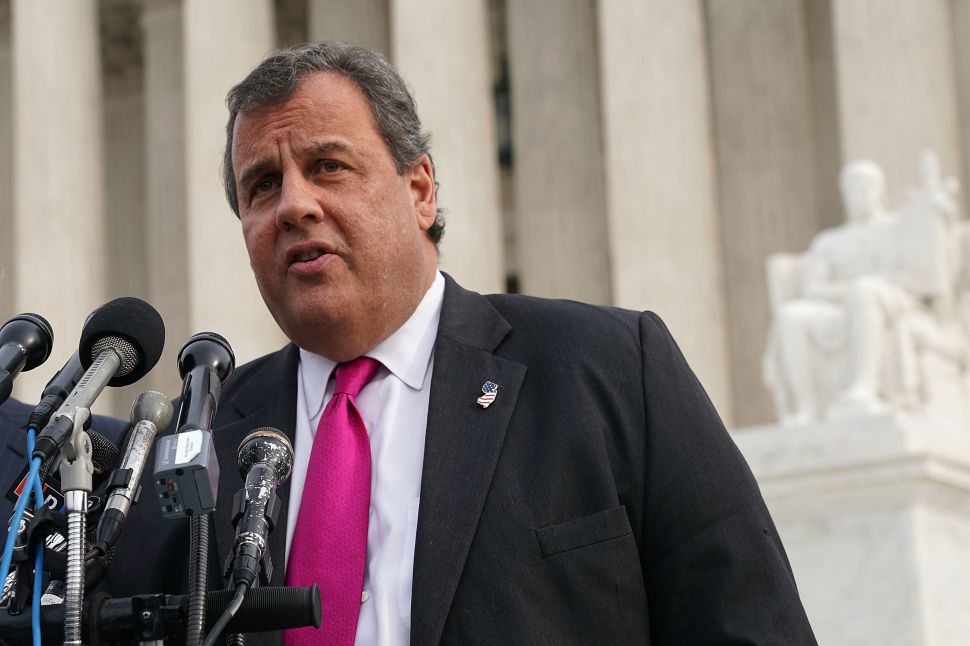
One of former New Jersey Gov. Chris Christie’s greatest victories may come now that he has left office. During recent oral arguments in Christie v. NCAA, the Supreme Court justices appeared open to allowing states to legalize sports betting.
Christie has been fighting for years to invalidate the 1992 Professional and Amateur Sports Protection Act (PASPA). It expressly prohibits government entities, including the states, from authorizing sports wagering. The only current exceptions are the states of Nevada, Oregon, Montana and Delaware.
PASPA gave New Jersey (but no other state) permission to authorize, license and, otherwise, regulate sports wagering, but only in Atlantic City and only if a measure was enacted within one year of PASPA’s effective date. New Jersey declined to act before the deadline.
The federal sports betting law also authorizes professional and amateur sports organizations, as well as the United States Attorney General, to file lawsuits to enforce its provisions.
In the suit currently before the U.S. Supreme Court, New Jersey is arguing that PASPA is unconstitutional because it dictates the extent to which the states must maintain their prohibitions on sports wagering. Citing New York v. United States, 505 U.S. 144 (1992), New Jersey specifically argues that PASPA violates the 10th Amendment, which prohibits the federal government from “commandeering” the states to enforce federal law.
Efforts to Legalize Sports Betting in New Jersey
When New Jersey passed a law establishing a regulatory regime for legalized sports betting in 2012, the country’s major professional sports leagues and the NCAA filed a lawsuit, which was joined by the Department of Justice.
In its defense, the state of New Jersey argued that the federal ban is unconstitutional. It specifically maintained that the power to regulate gambling and benefit from the revenue it generates should rest with the states and not the federal government. New Jersey further argued that PASPA violates the equal protection clause of 14th Amendment because it is not applied equally across all states.
The Third Circuit rejected the constitutional challenge and concluded that the state could not regulate sports betting without running afoul of PASPA.
However, the appeals court held that the states retained “much room . . . to make their own policy” and were free to “enforce the laws they choose to maintain.”
Seeking to comply with the Third Circuit’s decision, New Jersey passed a 2014 law that partially repealed state laws prohibiting sports wagering. The sports leagues again filed suit. In response, the state argued that it is unconstitutional for PASPA to dictate the extent to which states must maintain their prohibitions on sports wagering.
Justices Buy into State Sovereignty Argument
In his petition for certiorari, Christie argued that the “federal takeover of New Jersey’s legislative apparatus is dramatic, unprecedented, and in direct conflict with this Court’s 10th Amendment jurisprudence barring Congress from controlling how the States regulate private parties.”
The brief further argued, “Never before has congressional power been construed to allow the federal government to dictate whether or to what extent a State may repeal, lift, or otherwise modulate its own state-law prohibitions on private conduct. And never before has federal law been enforced to command a State to give effect to a state law that the State has chosen to repeal.”
In oral arguments, attorney Theodore Olson, who argued on behalf of New Jersey, argued that while the federal government may pre-empt state activities under its commerce power, it may only do so when it actually implements a comprehensive federal regulatory scheme that would render state actions inconsistent.
“PASPA is a direct command to the states without any effort to regulate sports wagering,” he argued. With regard to sports wagering, Olson maintained that the federal government wanted to “put the burden and expense and accountability all on the states.”
Several justices seemed to agree that PASPA runs afoul of the 10th Amendment.
“The citizens of the State of New Jersey are bound to obey a law that the state doesn’t want but that the federal government compels the state to have,” Justice Anthony Kennedy noted. “That seems like commandeering.”
While the oral arguments suggested that the majority may be sympathetic to the state’s arguments, it is too soon to declare victory. The Supreme Court’s decision is expected before the end of June 2018.
Donald Scarinci is a managing partner at Scarinci Hollenbeck—read his full bio here.

